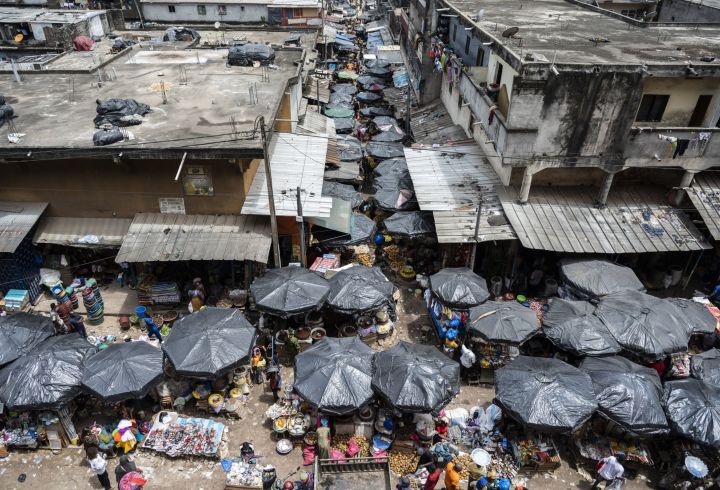Business Maverick
More African Nations Are Expected to Tap the G-20’s Debt-Restructuring Plan

More African countries are expected to join Chad, Zambia, Ethiopia and Ghana in seeking to restructure debts under the Group-of-20 nations’ so-called Common Framework, the head of a United Nations panel said.
As many as 15 emerging markets tracked in a Bloomberg gauge have average dollar-bond yields trading at an excess of 10 percentage points over US Treasuries, an indication of distress. Among them are defaulter Zambia, Ethiopia and Ghana. Tunisia, which last year struck a crucial accord with the International Monetary Fund, is also on the list.
Dollar bonds from Nigeria and Egypt hover near the so-called danger zone, with average yields of more than 7 percentage points over Treasuries. The extra yield investors demand to hold Mozambique’s sovereign debt is also elevated, JPMorgan Chase & Co. data show.

Chad became the first nation to clinch a deal to restructure its debts under the Common Framework in 2021. Ethiopia and Zambia are in the process of negotiating agreements, while Ghana announced earlier this month that it intended seeking relief under the plan.
Rising interest rates and the strengthening of the US dollar are likely to cause more countries to join their ranks, according to Pedro.
The G-20 mechanism, which brings the Paris Club of traditional rich debtor countries together with China to try to restructure the debts of low-income countries on a case-by-case basis, has drawn criticism on the grounds that it is slow and cumbersome to implement.
Proposed Reforms
African authorities are proposing several reforms to improve the framework, according to Pedro. They include developing a burden-sharing arrangement between private and official creditors, expanding creditor committees to incorporate private entities from the onset of restructuring talks, expanding access to the framework to middle-income countries and giving nations more time to take advantage of it.
Increasing trade would help African nations improve the state of their finances, and the African Continental Free Trade Area can play a key role, Pedro said. Since the signing of the AfCFTA accord in 2018, several countries have begun developing payment systems and liberalizing their tariffs.
Pedro also backed calls for the reallocation of the IMF’s so-called special drawing rights, reserve assets that work like an overdraft and come with no conditions, from wealthy nations to poorer ones. The African Development Bank has lobbied rich nations to use their rights to the SDRs to help raise funding to support poorer countries.
Read: African Lender Wants to Leverage Rich Nations’ IMF Reserve Funds
“There is an opportunity in democratizing the allocation of the special drawing rights, basically tapping into those dormant SDRs for countries that didn’t need it,” he said. “We could perhaps have access to $100 billion or so.”
Other interview highlights:
- There is a huge opportunity for Africa to produce electric vehicles and their components.
- Developing carbon-credit markets on the continent, particularly in the Congo Basin in central Africa, could generate more than $82 billion a year, assuming a price of $120 per ton of carbon.
- The average inflation rate in Africa is expected to slow to 12.9% this year, from an estimated 14.3% in 2022.
- Monetary tightening is expected to continue in most African countries this year, albeit at a slower pace due to a downward trend in inflation.




















 Become an Insider
Become an Insider
Comments - Please login in order to comment.